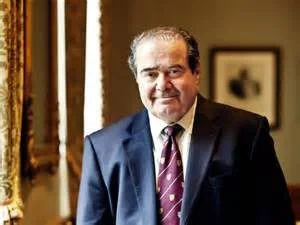|
|
Last Modified on Jun 18, 2024

Scalia’s Legacy
Antonin “Nino” Scalia, the 103rd Justice to serve on the United States Supreme Court, passed away on February 13, 2016. He leaves behind his wife and family of nine children and a legacy of having authored 282 majority opinions in his nearly 30 years on the Court.
While known best for being a stalwart conservative, he was nominated by President Ronald Reagan, Justice Scalia was as influential in his steadfast support of criminal defendants.
Cases in point:
In the 1989 case of Texas v. Johnson, Scalia upheld the 1st Amendment defense in voting to strike down a state law that criminalized the burning of an American Flag. Years later, in 2004, Scalia authored the majority opinion in Crawford v. Washington, upholding the 6th Amendment right of criminal defendants to confront accusatory witnesses. There, the government sought to affirm a conviction based on testimony the defendant was denied the ability to cross-examine. In disagreeing with the government, Scalia reasoned:
“Dispensing with the confrontation because testimony is obviously reliable is akin to dispensing with jury trial because a defendant is obviously guilty.”
In 2012, Justice Scalia authored the majority opinion in United States v. Jones, which held the government had violated the 4th Amendment right against unreasonable searches and seizures when it placed a GPS tracking device on a suspected drug dealer’s car. A year later, Scalia authored the scathing dissent in Maryland v. King, in which he vehemently disagreed with the majority ruling that permitted the government collection of DNA samples as “part of a routine booking procedure.” Specifically, he wrote:
“Today’s judgment will, to be sure, have the beneficial effect of solving more crimes; then again, so would the taking of DNA samples from anyone who flies on an airplane…, applies for a driver’s license, or attends a public school. Perhaps the construction of such a genetic panopticon is wise. But I doubt that the proud men who wrote the charter of our liberties would have been so eager to open their mouths for royal inspection.”
These are but a few of the vast compendium of Supreme Court cases during Scalia’s tenure that significantly shaped the everyday practice of criminal defense law. Whether remembered best for his conservative jurisprudence, his incisive intellect or his originalist interpretation of the U.S. Constitution, Justice Scalia’s support of the criminal defendant deserves a sacred place in such legacy.
By Taylor Moudy
Law Clerk, Law Office of Louis J. Goodman







